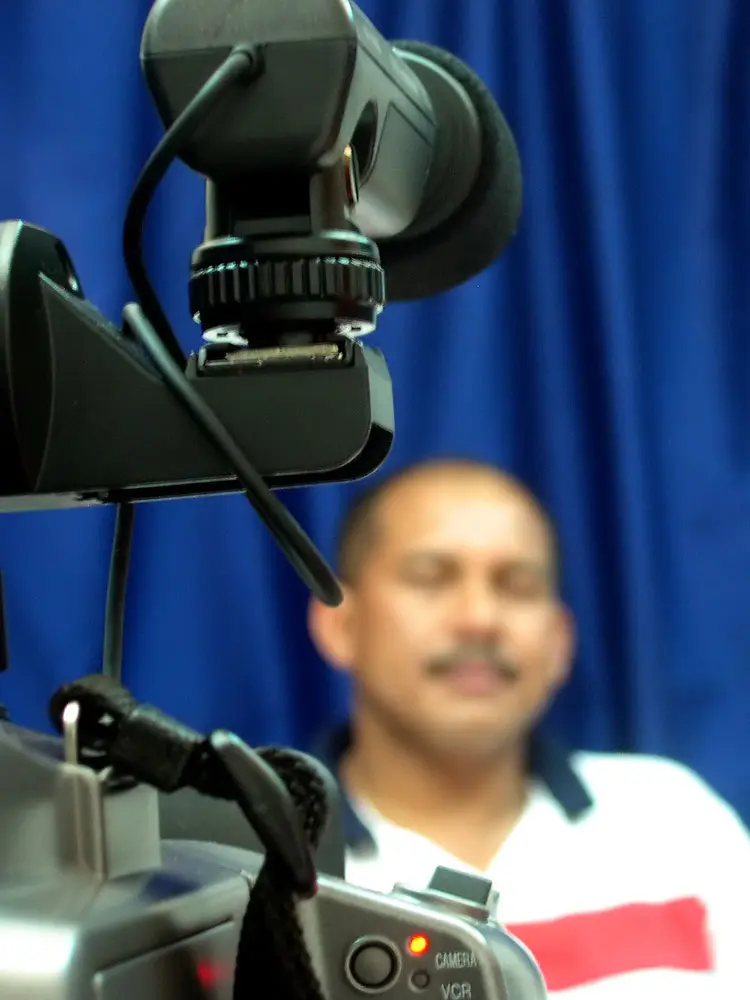A step-by-step guide to legal video depositions: What attorneys need to know
The Importance of Legal Video Clip Depositions in Modern Legal Providers: What You Ought to Know
Legal video clip depositions have become important in today's lawful landscape. They supply a multidimensional sight of witness statements that traditional records merely can not match. By capturing both non-verbal and verbal communication, these depositions enhance the overall understanding of a witness's integrity. The performance of video depositions hinges on various elements, including conformity with lawful standards and best methods. Exploring these components exposes their real value in modern-day lawful services
What Are Lawful Video Clip Depositions?
Lawful video depositions work as an essential tool in the litigation procedure. They entail tape-recording witness statements in a video layout, capturing both non-verbal and spoken interaction. This technique enables lawyers to record the temperament, expressions, and responses of witnesses, providing a richer context for the testament. Generally conducted in a regulated environment, these depositions are led by lawyers that ask concerns while a court press reporter records the dialogue. The resulting video can be essential for trial prep work, as it enables legal representatives to assess the reliability of witnesses and improve their approaches. Furthermore, legal video depositions can be made use of in various lawful contexts, varying from civil disputes to criminal instances. The aesthetic and acoustic elements of video depositions enhance the presentation of evidence, making it an essential element in the contemporary lawful landscape. In general, they add considerably to the effectiveness and efficiency of legal procedures.

Benefits of Video Depositions Over Typical Methods
Video depositions supply countless benefits contrasted to traditional techniques of taking witness testaments. One considerable benefit is the capability to record both audio and aesthetic elements, supplying a much more detailed record of the witness's declarations. This twin format boosts clearness and permits lawyers to reference certain nuances throughout test preparation. Additionally, video depositions assist in remote participation, making it easier for witnesses who might be inaccessible for in-person looks as a result of geographical constraints or health and wellness issues.Moreover, video depositions can accelerate the general deposition procedure, minimizing the time and prices related to traveling and logistics. They also improve accessibility, as tape-recorded depositions can be conveniently shared amongst lawful groups and referenced any time. This ease adds to far better case monitoring and prep work. On the whole, video depositions represent a contemporary, effective technique to gathering witness statements, aligning with the evolving needs of the lawful career.
The Duty of Body Language and Tone in Testimonies

In legal video depositions, body language and tone play vital functions in sharing a witness's trustworthiness and trustworthiness. Nonverbal cues can supply insights right into a witness's mood, influencing exactly how their testament is viewed. Recognizing the effect of these components is vital for jurors and lawyers alike when examining the dependability of a testament.
Nonverbal Communication Insights
While verbal interaction is typically stressed in lawful testimonies, nonverbal hints such as body language and tone play a crucial function in sharing credibility and feeling. Viewers of depositions may note that a witness's position, motions, and faces can considerably influence understandings of integrity. As an example, constant eye contact might signify self-confidence, while preventing look could suggest dishonesty or discomfort. The tone of voice-- its rate, pitch, and quantity-- can present feelings of sincerity or uncertainty. Lawyers need to be in harmony with these nonverbal signals, as they often supply crucial context that enhances talked words. Comprehending these nuances can enhance the efficiency of depositions and affect the result of lawful process.
Psychological Tone Impact
The psychological tone shared during lawful testaments considerably affects how a witness is viewed. Body language, singing inflections, and facial expressions play crucial roles in forming the narrative of a testament. A witness displaying confidence with constant eye get in touch with and a calm tone can impart a feeling of reliability and involvement. On the other hand, indications of anxiety, such as fidgeting or a shaky voice, may cause skepticism concerning their account. The subtleties of psychological expression can influence the interpretation of realities, making it important for lawful professionals to acknowledge these signs. In video depositions, the auditory and visual elements incorporate, emphasizing the relevance of psychological tone in conveying sincerity and truthfulness within the lawful procedure.
Trustworthiness and Reliability
A vital element in developing reputation and trustworthiness during statements exists in the witness's body language and tone of voice. Onlookers commonly count on non-verbal cues-- such as eye contact, pose, and motions-- to assess a witness's sincerity. A witness who preserves eye get in touch with and shows open body language may be perceived as more trusted and straightforward than one that stays clear of eye get in touch with or appears closed off. Additionally, tone of voice plays an important function; a stable, calm tone can reinforce the credibility of the testament, while variations in pitch or quantity might elevate uncertainties. Inevitably, the mix of body movement and vocal tone greatly affects just how a witness's statements are received and analyzed in a legal context.
Best Practices for Performing Video Clip Depositions
Carrying out video depositions calls for cautious planning and implementation to guarantee a reliable and clear presentation of testament. Initially, it is essential to pick a silent, well-lit location to decrease diversions and protected optimum video high quality. The tools ought to be examined in development, including cams, microphones, and lighting, to prevent technological issues throughout the deposition.Next, parties included must evaluate the format and treatments beforehand, making certain that everyone comprehends their duties. The deponent ought to be oriented on the procedure, consisting of how to react plainly and concisely.Additionally, preserving a professional temperament throughout the session is vital. This consists of refraining from talking over each other and verifying that all inquiries are directed properly. It is essential to record the deposition in a format that permits for easy playback and review, preserving the stability of the testimony for future use.
Legal Factors To Consider and Conformity Issues
Just how do legal factors to consider and conformity issues impact the performance of video clip depositions? Lawful specialists have to navigate a complex landscape of regulations, making certain that video depositions comply with administrative policies and criteria. Compliance with laws worrying personal privacy, consent, and taping techniques is crucial. For example, acquiring explicit permission from all celebrations involved is required to prevent lawful repercussions.Additionally, the admissibility of video clip proof in court can rest on compliance with step-by-step requirements. Ensuring that the devices used fulfills technical criteria is additionally vital, as poor high quality can undermine the deposition's reliability.Moreover, attorneys must recognize any kind of details state regulations that control video clip depositions, as these can vary greatly. Failure to resolve these considerations can not just jeopardize the integrity of the deposition but additionally impact the general situation technique, eventually impacting the customer's legal end results.
Just How Video Depositions Influence Court Understanding
While video clip depositions can function as effective devices in legal procedures, their influence on jury assumption is significant. The auditory and visual elements of video recordings provide jurors with a much more comprehensive understanding of witness attitude, credibility, and psychological responses. This multimedia approach can enhance the jurors' ability to evaluate the reliability of testimony contrasted to standard text-based transcripts.Moreover, video depositions enable jurors to observe body movement, tone of voice, and face expressions, every one of which can impact their analysis of the witness's declarations. The presence of a witness on display can humanize them, fostering compassion and link, which may sway jurors' viewpoints. Conversely, a witness that shows up evasive or untrustworthy on video might cause negative understandings that influence a jury's choice. Inevitably, the dynamic nature of video depositions plays an essential role fit exactly how jurors translate evidence and reach their judgments.
The Future of Video Clip Depositions in Legal Technique
As advancements in modern technology continue to improve the lawful landscape, the future of video depositions is positioned for significant advancement. Technologies such as synthetic knowledge, online reality, YOURURL.com and enhanced video clip conferencing devices are expected to improve the deposition procedure and improve access. Lawyers might use AI-driven analytics to examine witness integrity and case strength much more effectively.Moreover, the combination of online fact can allow courts to experience immersive simulations of depositions, offering deeper context and understanding. Additionally, the trend toward remote depositions is most likely to continue, offering better flexibility for clients and attorneys alike.As remote work becomes progressively stabilized, video depositions will likely come to be common method, decreasing costs and time constraints associated with typical techniques. On the whole, these technical advancements assure to boost the performance, performance, and availability of video clip depositions in lawful technique, inevitably click changing exactly how lawyers get ready for trial.
Regularly Asked Concerns
Just How Much Do Legal Video Depositions Typically Expense?

Can Video Clip Depositions Be Used in Any Sort Of Situation?
Video depositions can be made use of in different kinds of situations, consisting of civil, criminal, and family legislation. Their flexibility enables lawyers to existing witness testimonies successfully, adjusting to the particular requirements of various lawful situations.
What Devices Is Required for a Video Clip Deposition?
To conduct a video deposition, essential devices consists of a high-quality cam, microphone, lights, and a dependable recording gadget. Furthermore, a computer system with editing software may be needed for post-production and formatting the last video clip.
For how long Does a Typical Video Deposition Last?
A common video deposition lasts between two to four hours, depending upon the intricacy of the instance and the variety of inquiries postured. Extensive sessions might take place, yet breaks are generally included for individual convenience.

Are Video Depositions Admissible in Court?
Video depositions are typically admissible in court, offered they comply with legal standards and guidelines of evidence. Their use boosts quality and maintains witness testament, helping in the judicial procedure throughout Full Report hearings and trials. Lawful video clip depositions have ended up being necessary in today's lawful landscape. Additionally, legal video depositions can be utilized in numerous lawful contexts, ranging from civil disputes to criminal cases. In addition, video clip depositions assist in remote engagement, making it less complicated for witnesses who may be not available for in-person appearances due to geographical restrictions or wellness issues.Moreover, video clip depositions can expedite the overall deposition process, decreasing the time and expenses connected with traveling and logistics. Making certain that the tools made use of fulfills technological standards is also important, as poor quality can undermine the deposition's reliability.Moreover, attorneys must be aware of any particular state laws that govern video depositions, as these can vary greatly. In addition, the fad towards remote depositions is most likely to continue, using higher versatility for customers and lawyers alike.As remote job ends up being progressively normalized, video depositions will likely come to be typical technique, minimizing expenses and time restrictions associated with traditional approaches.